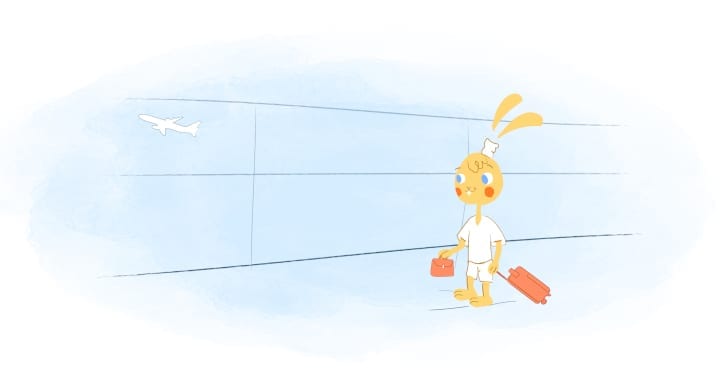
Stoicism is fundamentally about choices. It’s about choosing how we see things, how we respond to challenges, and who we become through our daily decisions. This ancient philosophy offers surprisingly relevant guidance for contemporary life.
I’ve been reflecting on Ryan Holiday‘s insights from the Daily Stoic, and his perspective on Stoicism as a philosophy of choice resonates deeply. When he speaks about Marcus Aurelius “struggling to be the person that philosophy tried to make him,” I see that same struggle in my own life.
We all face the battle between our higher and lower selves — between what’s easy and what’s right. The beauty of Stoicism is that it provides practical tools for winning this battle more often.
Stop Preparing to Live and Start Living Now
One of the most powerful Stoic lessons is the importance of being present in the moment. As Holiday points out, “I’ll do it tomorrow” is one of the biggest lies we tell ourselves. Seneca warned that “putting things off is the biggest waste of life” because it “denies us the present by promising us the future.”
I had fallen into this trap countless times — waiting for the “right conditions” before starting something important. However, the Stoics remind us that there is something entitled about procrastination. It assumes we’ll have the time, discipline, and opportunity later, which isn’t guaranteed.
The solution? Do it now. Whatever is worth doing, start immediately. The graveyard of wasted potential is filled with people who needed to “do something else first.”
Build Systems, Not Just Motivation
Holiday references choreographer Twyla Tharp’s approach to creativity: “If she gets downstairs into the cab, the rest takes care of itself.” This perfectly captures how systems trump motivation.
I’ve found this to be true in my own life. When I rely solely on motivation, I’m at the mercy of my feelings. But when I build routines:
- I don’t need to decide whether to work – it’s just what I do at a specific time
- The habit itself creates momentum that carries me through resistance
- I accomplish more with less mental fatigue
As Holiday says, “Routine is something that sits above and below motivation and just takes care of it.” This is why professionals don’t wait for inspiration – they just get to work.
Escape the Noise by Reading What Matters
In our information-saturated world, Holiday offers a refreshing perspective: “If you are following every story, every bit of breaking news, you’re going to get eaten alive.”
I’ve experienced this firsthand. The constant stream of notifications, breaking news, and social media updates creates a mental fog that makes clear thinking nearly impossible.
The Stoic solution? Step away from the noise and pick up a book — especially old books. There’s wisdom in reading materials designed with a “long half-life” rather than content that will be irrelevant tomorrow.
Books offer a perspective that breaking news can never match. Reading history, psychology, philosophy, and fiction helps us see current events through a wider lens. It’s about escaping what Robert Greene calls “tactical hell” to enter “strategic heaven” – or simply becoming more philosophical.
Focus Only on What’s Essential
Marcus Aurelius asked a question we should all consider: “Is this essential?” Most of what we do, say, and think isn’t essential – it’s just busy work or societal expectations.
When we eliminate the non-essential, we gain a double benefit: we do the essential things better, and we conserve our limited motivation for what truly matters.
I’ve found that saying no to unimportant commitments gives me more energy and focus for meaningful work. It’s not about doing more – it’s about doing what counts.
The Simple Habit That Solves Many Problems
Of all the Stoic practices Holiday discusses, one stands out for its simplicity and power: taking walks.
Seneca advised, “wandering outdoor walks so that the mind might be nourished and refreshed by the open air and deep breathing.” Kierkegaard wrote that he “walked himself into his best thoughts” and knew of “no thought so burdensome that one cannot walk away from it.”
I’ve experienced this myself. When stuck on a problem or feeling overwhelmed, a walk often provides the clarity I need. There are a few problems in life that aren’t improved by taking a walk.
Remember You Are Mortal
Perhaps the most powerful Stoic practice is “memento mori” — remember you are mortal. As Holiday explains, this isn’t morbid; it’s clarifying.
Marcus Aurelius wrote, “You could leave life right now. Let that determine what you do and say and think.” This awareness gives urgency to our choices and helps us waste less time.
I try to remember that I’m not just going to die someday — I’m dying right now. Every minute that passes is gone forever. This perspective makes me more intentional about how I spend my time and what I prioritize.
The Stoics offer us practical wisdom for living better lives. By making conscious choices about how we respond to challenges, building systems rather than relying on motivation, focusing on what’s essential, and remembering our mortality, we can become more of the person philosophy tries to make us.
Frequently Asked Questions
Q: What is the core principle of Stoicism, according to Ryan Holiday?
According to Holiday, Stoicism is fundamentally about choices – choosing how we see things, how we respond to challenges, and who we become through our daily decisions. Virtue in Stoicism means choosing who we are through our daily actions and behaviors.
Q: How can Stoicism help with procrastination?
Stoicism addresses procrastination by emphasizing the importance of the present moment. The philosophy teaches that “I’ll do it tomorrow” is a dangerous lie we tell ourselves. Seneca warned that putting things off wastes life by denying us the present while making empty promises about the future. The Stoic approach is to start immediately on anything worthwhile.
Q: Why do Stoics recommend reading books instead of following the news?
Stoics recommend books, especially older ones, because they provide more profound wisdom and perspective than the constant stream of breaking news. Books are designed with a “long half-life” of truth, while most media content becomes quickly irrelevant. Reading history, philosophy, and fiction helps us see current events through a wider lens and escape what Robert Greene calls “tactical hell.”
Q: What does “memento mori” mean in Stoic practice?
“Memento mori” means “remember you are mortal.” This Stoic practice isn’t meant to be morbid but clarifying. It reminds us that time is our most precious resource and we shouldn’t waste it. As Seneca noted, we’re not just going to die someday – we’re dying right now, with every minute that passes. This awareness gives urgency to our choices and helps us focus on what truly matters.
Q: How can walking help with problem-solving according to Stoicism?
Stoics like Seneca recommended walking outdoors to nourish and refresh the mind. Walking serves as a form of moving meditation that can provide clarity when facing problems. As philosopher Kierkegaard noted, he “walked himself into his best thoughts” and found no thought so burdensome that he couldn’t walk away from it. The physical activity combined with fresh air creates mental space for solutions to emerge.











Deanna Ritchie
Editor-in-Chief at Calendar. Former Editor-in-Chief, ReadWrite, Editor-in-Chief and writer at Startup Grind. Freelance editor at Entrepreneur.com. Deanna loves to help build startups, and guide them to discover the business value of their online content and social media marketing.